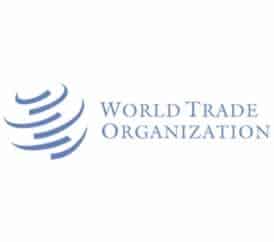Trade Facilitation
The program addresses the concerns of Member States regarding the instability of international markets and the rising costs of transport and logistics.
The development of intra-OIC trade faces several legal, institutional and physical constraints. The Trade Facilitation Program addresses the concerns of Member States regarding the instability of international markets and the rising costs of transport and logistics.
The objective of this program is to reduce the barriers to trade through the implementation of technical assistance projects that have a direct impact on trade among Member States. The proposed activities focus on supporting the implementation of the Trade Facilitation Agreement of the World Trade Organization (WTO) as well as the negotiations of other WTO Agreements. In addition, this program pays special attention to the introduction of digitalization techniques to solve transport and transit challenges between Member States.

Implementation of WTO TFA Category C Measures

Support of Multilateral and Regional Trade Negotiations

Digitalization of Foreign Trade Procedures

Implementation of the OIC Trade Preference System (TPS-OIC)
Implementation of WTO TFA Category C Measures
The Trade Facilitation Agreement (TFA) of the WTO , which entered into force on February 22, 2017 is of utmost importance for the development of intra-OIC trade and investment. It requires signatory countries to reduce barriers to trade, including expediting clearance procedures for goods, including those in transit. In fact, its implementation could assist OIC member countries in increasing their export share in international markets.
In order to meet the requirements of the TFA, OIC countries need to conduct a reform process and adaptation of their legal and institutional systems related to foreign trade operations. To this end, African OIC Member States are eligible to benefit from technical assistance programs to build their capacity in implementing the provisions of the TFA under Category C measures.
In order to assist Member States in the implementation of the TFA Category C measures, ICDT organizes national and regional training and awareness-raising workshops on the following topics :
- Administrative and technical procedures for coordination and preparation of WTO notifications
- Facilitation of transport procedures;
- Control procedures;
- National coordination processes;
- Regional cooperation among border agencies and risk assessment regarding the implementation of the TFA;
- Establishment of integrated regional trade facilitation programs.
Support of Multilateral and Regional Trade Negotiations
The OIC Member States are invited to actively participate in multilateral trade negotiations within the WTO and within the framework of regional groups. ICDT provides technical assistance to Member States in these negotiations. The activities organized by ICDT aim at providing an opportunity to the negotiators to be informed on the state of play of the issues discussed in the WTO as well as on the related subjects relating to regional integration such as the African Continental Free Trade Area (AfCFTA), the Arab League and other agreements at the Asian level.
The workshops planned for 2023 in partnership with IsDB, UNCTAD and WTO will focus on the outcomes of MC12, preparations for MC13 as well as the establishment of the AfCFTA.
Digitalization of Foreign Trade Procedures
The digitalization of foreign trade procedures is one of the solutions to the regional challenges of trade facilitation. The adoption of digitalization techniques serves to alleviate the transport and transit difficulties affecting the landlocked countries of Africa and Central Asia in particular.
ICDT provides, in partnership with IsDB, the Global Alliance for Trade Facilitation (GATF), WTO and UNCTAD, assistance to OIC African countries in implementing their national strategies to digitalize foreign trade procedures. Such approach is also part of the framework aimed at supporting these countries in undertaking their commitments at the level of the TFA. Furthermore, it includes assisting Member States in the digitalization of their process of transport procedures (e-TIR), in accordance with the commitments arising from the customs convention on the international transport of goods.
The first projects cover the Morocco-Mauritania, Senegal-Mali, Burkina Faso-Côte d’Ivoire, Niger-Nigeria and Chad-Sudan cross-border posts that will be implemented between 2023 and 2024 in compliance with the recommendations of the training workshop on TIR/e-TIR and CMR/e-CMR (Commercialization of Goods by Road) organized by the ICDT in 2022. Other technical assistance activities are planned during 2023.
Implementation of the OIC Trade Preference System (TPS-OIC)
The OIC Trade Preferential System (TPS-OIC) is a legal instrument for the exchange of trade concessions among the OIC Member States. The legal instruments implementing this system are: the Framework Agreement specifying the main principles of intra-OIC trade, the Protocol on the Preferential Tariff Scheme for TPS-OIC (PRETAS), the Protocol on the Rules of Origin and the settlement of the Negotiating Committee.
ICDT and the COMCEC Coordination Office (CCO) act as joint secretariat for the implementation of TPS/OIC. The Centre has conducted impact studies at the national and regional levels. All the studies have highlighted the positive impact of the Agreement to varying degrees on the economies of the Member States. Similarly, ICDT has co-organized the follow-up meetings of this Agreement in collaboration with the CCO, the last of which was held in Istanbul in November 2022.
In order to facilitate the operationalization of the TPS-OIC, which became effective as from 1st July 2022, the ICDT’s program for the year 2023 includes Webinars and regional awareness workshops to elaborate on the provisions of the Agreement and the practical aspects of its implementation. The primarily concerned regions, are: the African region, the Arab region, South East Asia and Central Asia.
